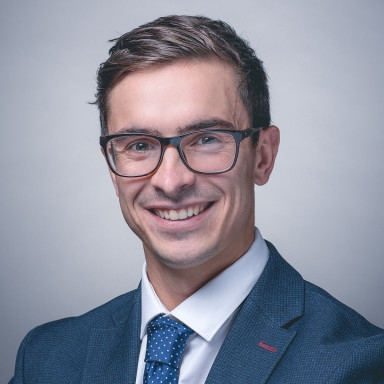Kirsty Desson has over 20 years’ industry experience and has been manager since 2020 following her impressive contributions as co-manager
The team uses a disciplined and time-tested process to uncover hidden gems around the globe
Long-term performance has been strong but the fund struggled in 2022 where high inflation and high interest rates impacted returns
This fund features on our Wealth Shortlist of funds chosen by our analysts for their long-term performance potential
How it fits in a portfolio
abrdn Global Smaller Companies aims to grow an investment over the long term. Fund manager Kirsty Desson and her team hunt for the world’s big companies of tomorrow using a time-tested tool known as the ‘matrix’. By investing globally, the fund could offer diversification to a UK-focused investment portfolio with exposure to different regions and themes. Whilst smaller companies have more room to grow than larger ones, they do carry more risk. This fund could also complement an adventurous growth-orientated portfolio investing in large or smaller companies.
Manager
In December 2021, veteran smaller companies’ investor Harry Nimmo stepped back as co-manager of this fund. He’s now subsequently retired from the industry, leaving Kirsty Desson as sole lead manager.
Desson has been the fund’s co-manager since February 2020, before being promoted to lead manager in December 2021. Her career began at Martin Currie in 2000 where she analysed companies in Asia and emerging markets. In 2012, she joined abrdn (which was then Standard Life) to focus on smaller companies within Asia, including Japan and emerging markets. Over this time, she’s built analytical experience and been heavily involved in the fund’s success.
Fund managers come and go and it’s only natural to associate their departure with the potential for change. In this instance though, we don’t expect much to change. Desson and Nimmo use the same investment philosophy and have worked together for the best part of a decade.
The US accounts for a substantial part of the team's investment universe and is overseen by Anjli Shah and Domantas Butvilas. Shah is an investment director within the team and has over a decade’s worth of experience in the industry. Alongside this fund, she is also the manager of the Global Mid Cap Equity fund.
Process
Desson and her team hunt for companies around the world outside the usual candidates of large firms that dominate stock markets. They believe smaller companies have greater long-term growth potential and are relatively under-researched, so there’s plenty of opportunity to uncover the larger companies of tomorrow.
Hunting for sustainable growth over the long term means the team doesn’t invest in more economically sensitive parts of the market like energy or real estate. Their focus on quality leads them to companies with strong balance sheets and good management teams whilst avoiding those that are highly indebted or loss making. Momentum is also important, which means the team likes to run their winners and cut their losers.
To identify these attributes, they use a quantitative tool called the ‘matrix’ which whittles down the universe of over 6,000 companies. The matrix output is continually reviewed, and the most attractive opportunities receive further analysis and team debate. They focus on the data for individual companies, rather than broader economic views.
This results in a fund of between 40 to 80 companies, they currently hold 46. This means each holding can make a meaningful contribution, but it can increase risk. Currently 45.8% of the fund is invested in the US, although this is less than the benchmark. In contrast, they invest more than the benchmark in other countries such as Australia, Germany, and Taiwan. The managers also invest in higher-risk emerging markets and can use derivatives, which if used adds risk.
Desson has made several new investments over the last 12 months including the addition of US industrial company Advanced Drainage Systems. The company has been gaining market share as the industry shifts to plastic water pipes which are greener and faster to install than traditional concrete pipes. Regional, the Mexican bank, was also added. The team believe Regional provides one of the highest and most consistent return profiles of all the banks in the smaller companies universe. With interest rates expected to decline, the backdrop for the bank remains supportive.
In contrast, Desson has switched from Fineco Bank into Italian asset management company Azimut. Fineco Bank was being gradually sold as the bank was experiencing deposit outflows as customers searched for higher yield. As conviction grew in Azimut the team decided to make the switch. US dental supply business Envista was also sold. The company reported weaker than expected results with management citing headwinds such as slowing demand and increasing competitors. Desson decided this was enough to move out of the name.
Culture
The fund was previously part of Standard Life plc, until the business merged with Aberdeen Asset Management in 2017 to create Standard Life Aberdeen plc. This later became Aberdeen Standard Investments and in July 2021, the company changed name once again to abrdn in order to simplify and unite under one single brand.
While mergers have the potential for disruption, we think the smaller companies team, which also includes UK and European funds, were relatively unaffected. There’s a collegiate feel to the smaller companies team at abrdn. Members share research and ideas with each other, and work with one another to debate and challenge stock decisions.
ESG Integration
Although the manager's process doesn’t specifically exclude any particular area, ESG (Environmental, Social and Governance) considerations form a part of company analysis. The managers engage with companies where they feel there are serious ESG issues and use their right to vote at shareholder meetings.
abrdn is a firm well known for its commitment to ESG. Responsible investing has been part of the business since it set up its Corporate Governance team in 1992 and launched its first ethical fund in 1994. We like that the firm’s policy positions on a range of divisive issues, from plastics and tobacco to palm oil and biodiversity, are easily available on their website. The firm also produces frequent ESG-related thought leadership articles, a podcast series and an annual Stewardship report.
We’re pleased to see that the firm’s commitment to ESG has filtered down to the fund level. abrdn fund managers generally see themselves as owners of businesses, not investors, and stewardship is an important part of their investment processes. The firm exercises all voting rights and engages with management to encourage best practice.
ESG and stewardship factors are included in every stock research note and each firm receives an ESG score, based on its ESG credentials and its ability to manage ESG risks. In fixed income, ESG risks are assessed and priced alongside other credit risks, and the managers encourage action that will reduce these risks. As with equities, each issuer receives an ESG risk rating. abrdn fixed income managers can invest in bonds issued by companies with a poor ESG risk rating, but require greater compensation via the credit spread. All managers have access to a central ESG team, as well as specialist on-desk analysts.
The company runs several exclusions-based and impact funds, which take their commitment to society, the environment, and other thematic investment goals a step further.
Cost
The fund has an ongoing annual charge of 1.05%, but we’ve secured HL clients an ongoing saving of 0.28%. This means you’ll pay a net ongoing charge of 0.77%. The HL platform fee of up to 0.45% per year also applies.
Performance
Since the fund launched in January 2012, it’s delivered some impressive returns. Over this period, it’s outperformed the IA Global sector average returning 267.64% versus 234.10%*. Remember past performance doesn’t indicate future returns. Although the majority of this performance cannot be attributed to Desson, she’s played an important role, particularly in Japan, Asia, and emerging markets.
Given the focus on quality companies we expect the fund to hold up relatively well when markets fall. In contrast, we expect the fund to lag the peer group when markets rise quickly. However, this was not the case in 2022 when the market fell, and the fund performed poorly. The fund has a consistent bias towards growth companies and therefore struggled as the market rotated away from these and towards value companies.
Over the last 12 months the fund has underperformed the sector average, returning 3.83% vs 12.44% for the IA Global sector. It is important to remember that the IA Global sector is mainly made up of funds that only invest in larger companies. Larger companies have typically outperformed smaller companies over this time period and in this environment we would expect this fund to underperform compared to the sector.
Larger companies have raced ahead of smaller companies primarily due to investors excitement about ‘AI’. It’s expected that the magnificent seven (Apple, Amazon, Alphabet (Google) Microsoft, Meta (Facebook), Tesla and Nvidia) are going to be the biggest beneficiaries of AI, as it helps make businesses more efficient and provide quicker and better services to customers. Due to this fund focussing on smaller companies it did not hold these large companies that led the market.
With smaller companies trailing behind their larger counterparts and trading below their historic valuation ranges, many anticipate a rebound. Historically smaller companies have done well in the rebound that follows the beginning of a recession which is expected in developed markets. They have also typically done well when interest rates fall which is also on the cards.
Desson’s investment in Irish video game company Keywords Studio was the largest detractor of performance. They have been deemed to be one of the losers from advancements in AI. US healthcare company Insulet also detracted. Insulet offer a range of treatments for diabetes and, off the back of the success of healthcare giants Eli Lilly and Novo Nordisk weight loss drugs, investors are now concerned it will reduce demand for Insulets products. Desson therefore took the decision to trim the position due to the uncertainty.
There were some positives over the year. US footwear designer Deckers Outdoor Corporation, best known for UGG and Hoka brands, was the best performing stock over the last 12 months. The company reported a strong set of results from their core brands and with strong sales momentum the management team have upgraded guidance going into spring 2024. Japanese sportwear company ASICS also performed strongly reporting better than expected results. Management continues to do well in expanding sales and improving margins.
Annual percentage growth
28/02/2019 To 29/02/2020 | 29/02/2020 To 28/02/2021 | 28/02/2021 To 28/02/2022 | 28/02/2022 To 28/02/2023 | 28/02/2023 To 29/02/2024 | |
|---|---|---|---|---|---|
abrdn Global Smaller Companies | -1.58% | 42.23% | -3.90% | -6.56% | 3.83% |
IA Global | 6.97% | 22.85% | 7.24% | 1.62% | 12.44% |


